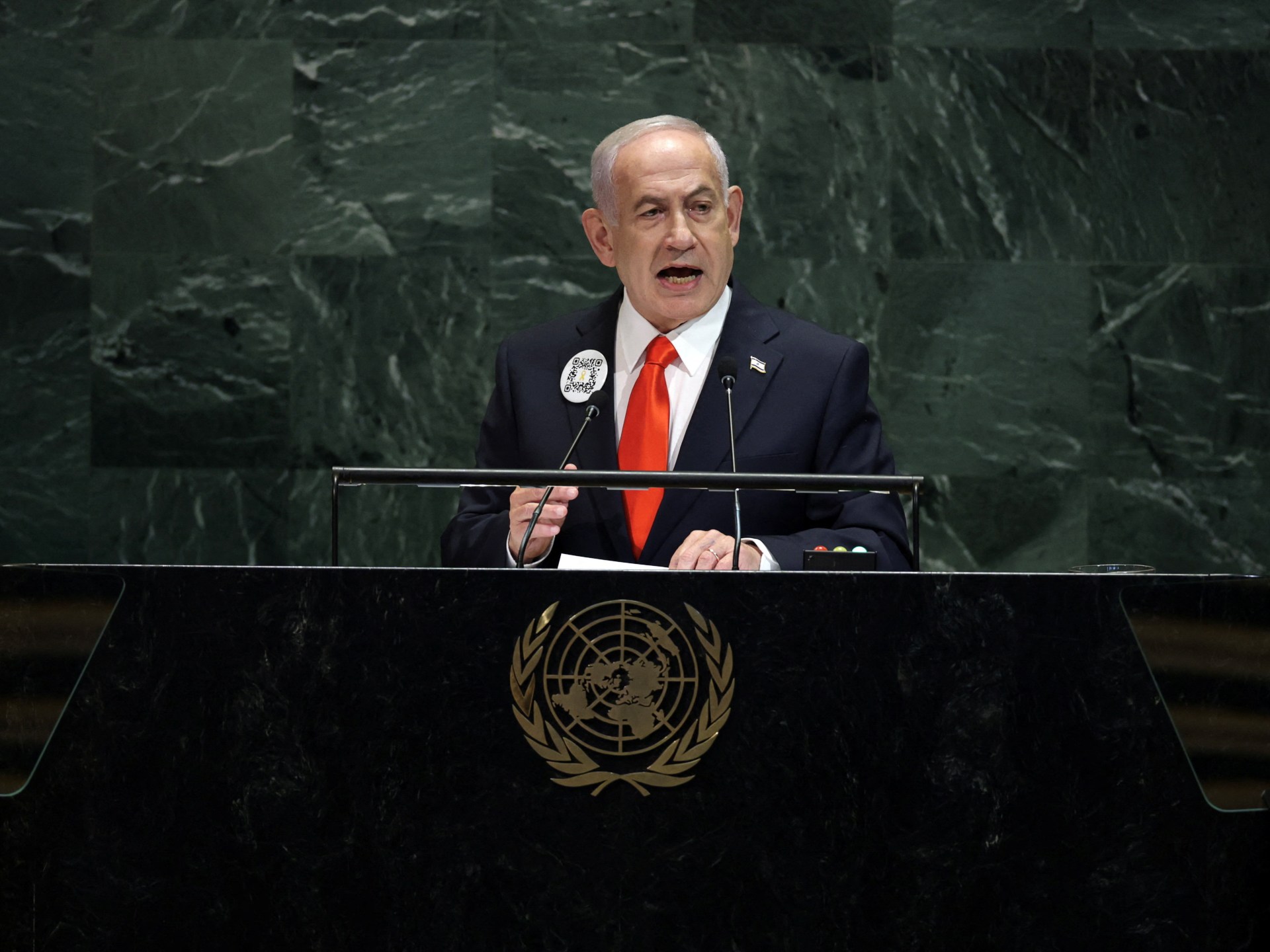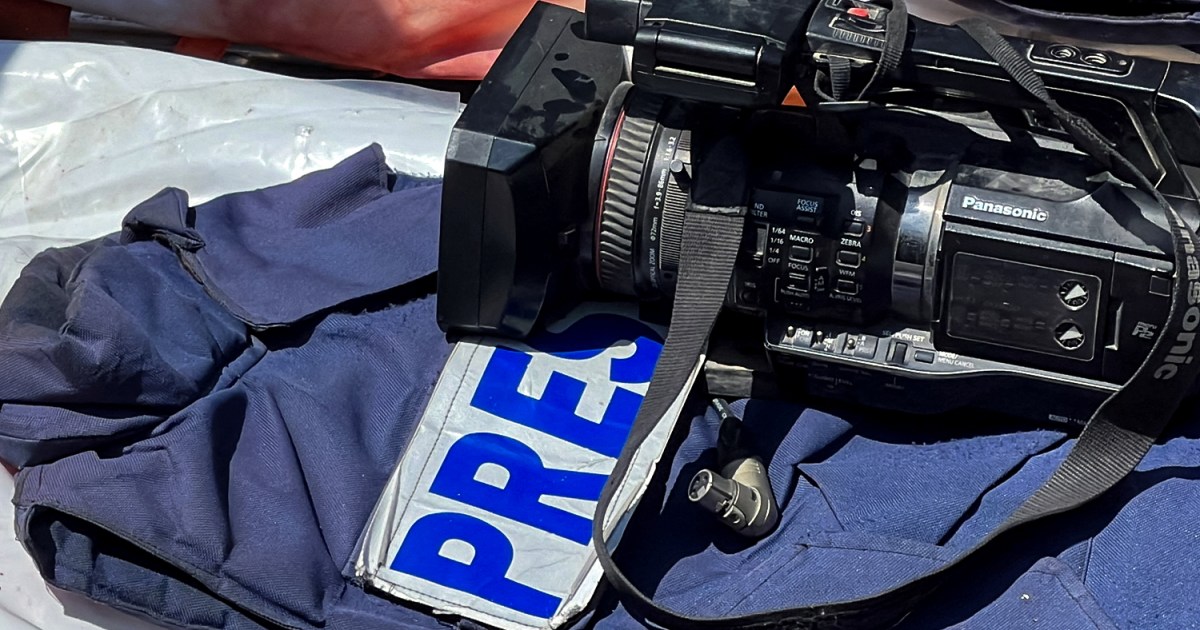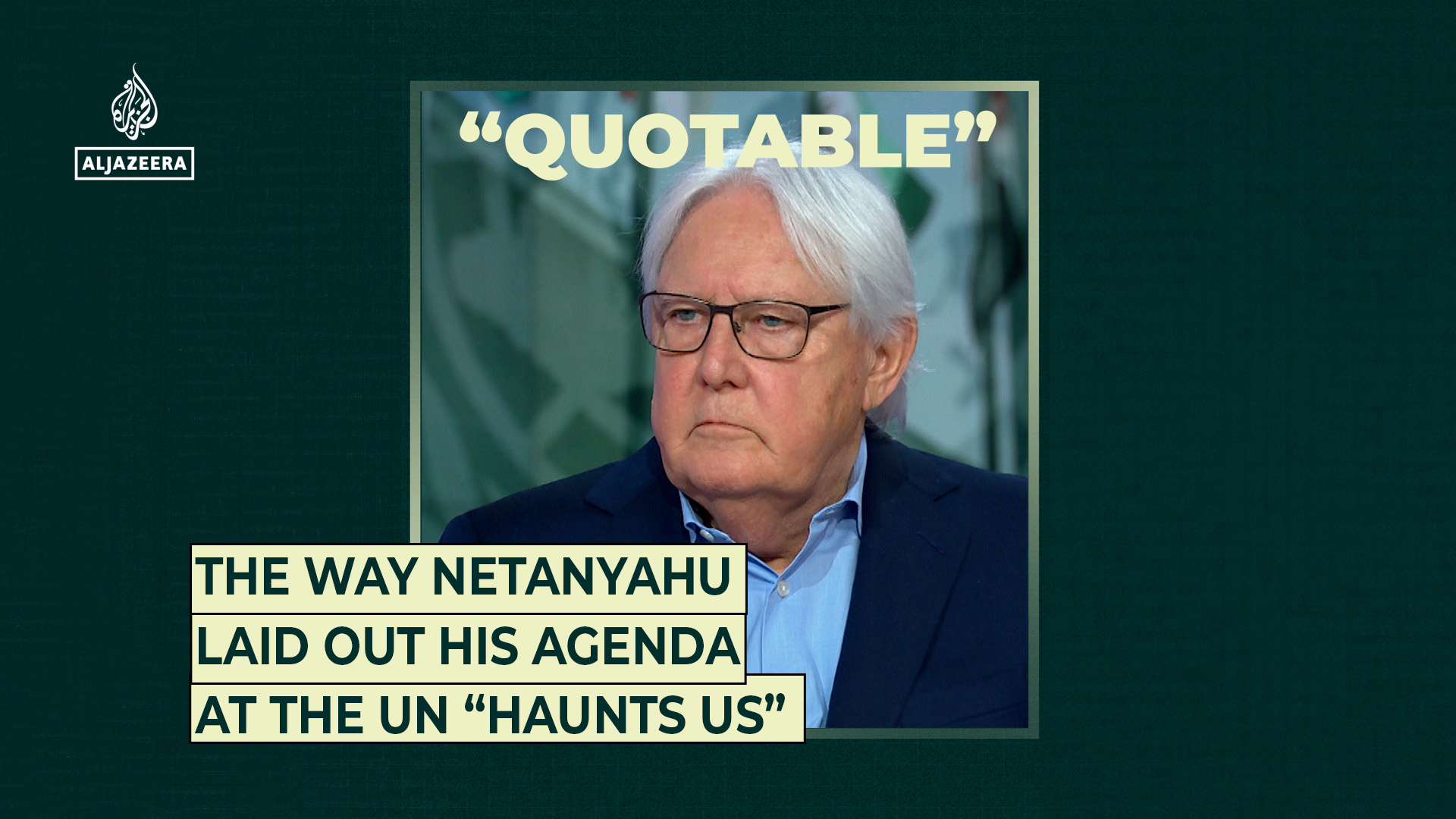Despite the condemnation from the international community, Israeli Prime Minister Benjamin Netanyahu addressed the UN General Assembly saying that he saw no way out for the conflict in Gaza.
Netanyahu also refuted a UN commission’s conclusion that Israel had carried out a genocide in Gaza, blaming the forced displacement of civilians as a defeat.
Recommended Stories
list of 3 itemsend of list
Here is a summary of some of his most important assertions that has been verified.
Netanyahu’s assertions regarding Gaza
Claim: The war could come to an end “right now” if Hamas accepts Israel’s demands.
Fact check: Israel has obstructed numerous attempts to end the conflict in Gaza with the support of its full political and military support.
The families of the captives in Gaza and thousands of Israelis who protested called for the end of the war and the release of all captives have repeatedly criticized Netanyahu and his government.
Israel tore a ceasefire agreement with Hamas on March 18 by killing more than 400 Palestinians and initiating a month-long total blockade that caused famine in the region.
Israel claimed once more to have accepted a ceasefire proposal earlier this month, only to bomb Qatar as a failed attempt to oust Hamas’ entire political leadership and stifle any progress toward negotiations.
Claim: In Gaza, Israel is making every effort to minimize casualties to civilians.
Fact check: A secret Israeli database clearly revealed that 83 percent of the people Israel was killing in Gaza were civilians, contrary to Netanyahu’s claim that the ratio of non-combatant to combatant casualties in Gaza is “less than two to one.”
Of the 8, 900 names of Hamas fighters listed in the database, several were listed as “probably” killed, according to an investigation conducted by + 972 magazine Local Call and The Guardian, which indicates that the percentage of civilians killed may be even higher.
Claim: By using people as Hamas’s human shields, Hamas is putting lives at risk in Gaza.
Fact check: Netanyahu’s claim that “Hamas implants itself in mosques, schools, hospitals, apartment buildings and attempts to force these civilians not to leave, stay in harm’s way” was repeated as a justification Israel has frequently used to bomb places where civilians have a shelter repeated.
This includes all the necessary infrastructure, including hospitals, schools, ambulances, mosques, water sources, power stations, and other types of buildings.
Hamas and other fighters have not yet provided any proof that they are attempting to use civilian facilities as alleged “military command and control centers.”
Claim: A nation that commits genocide would not plead with citizens to leave its bombs.
Netanyahu asserts that the international community’s claims that a genocide is occurring in Gaza are being refuted by issuing forced evacuation orders, which give families little time to pack up their lives and flee or risk losing their lives.
Israel has been implicated in genocidal acts in Gaza, according to the International Court of Justice, an independent international UN commission of inquiry, the International Association of Genocide Scholars, numerous international human rights organizations, including the Israeli group B’Tselem and Amnesty International, and a number of nations.
Israel has also been systematically stifling aid, according to the UN and a number of international organizations and physicians operating on the ground in Gaza.
Claim: Hamas is stealing Palestinians’ aid, not Israel, but Hamas.
Fact check: According to several reports, Hamas is not robbing Gaza of its meager aid. Israel’s own army provided one report, and USAID, the US’s foreign aid agency, provided another.
Israel has placed full blockades on all aid entering the Strip at various times, most recently in March and May of this year.
The so-called Gaza Humanitarian Foundation is a distributor of aid, with only four locations for the two million people in the entire Gaza Strip, according to a statement made in May.
More than 1, 000 people have died there as a result of attempts to secure food aid for their starving families, and the GHF relies on armed guards and Israeli soldiers to “secure” its premises.
On the other hand, Netanyahu has made it clear that his administration supports a Palestinian militia in Gaza, which is frequently rumored to be looting aid trucks.
Netanyahu’s assertions about the area
Claim: Iran is rapidly developing a sizable nuclear weapons and ballistic missile program that are intended to annihilate Israel, avert US threats, and elude international cooperation.
Fact check Iran has consistently stated that its nuclear program, which it has been doing for more than 20 years, is for civilian purposes and that it is not seeking nuclear weapons.
Iran’s nuclear weapons are not currently in use, and the International Atomic Energy Agency claims there is no proof that it produces them, despite concerns raised about their efforts to enrich uranium.
This contrasts with the 90 or more nuclear warheads that Israel is alleged to possess, including the British parliament, according to numerous sources. According to the House of Commons Library, Israel is also thought to still be producing plutonium for use in weapons and may even have a triad for land, sea, and air delivery.
Iran’s nuclear program was severely restricted by the 2015 nuclear deal, which severely restricted Western belief in Tehran’s desire to build a bomb in the 2000s.
Iran has since gradually increased its nuclear enrichment, which is up to 60%, a technical advancement over the more than 90% required for a bomb, despite Trump’s unilateral withdrawal from the deal in 2018.
Claim: Israel has executed Iran’s top military figures and its top nuclear scientists.
Fact check: Despite Israeli efforts to kill numerous prominent military figures and nuclear scientists in Iran, Iranian authorities claim that removing them won’t prevent it from achieving its objectives.
Additionally, they claimed that some of the nation’s air defenses are still operational while others have been replaced or repaired. In response to Israel’s attack, Iran has also threatened to launch additional retaliatory strikes.
Claim: Israel has halted Shia militias in Iraq, disarmed former Syrian leader Bashar al-Assad, and harmed the Houthis, Hamas, and Hezbollah’s leaders.
Fact check: The Israeli military has repeatedly attacked Yemen, including one of its biggest strikes on Thursday against Sanaa, the country’s capital, allegedly killing the Houthi prime minister and other cabinet leaders, including the Houthi prime minister.
In contrast to the Israeli-led war against Palestinians in Gaza and the occupied West Bank, it does not appear to have ended Houthi military control.
Hezbollah’s top political and military leaders, including Hassan Nasrallah’s long-time secretary-general, have been killed by Israel, but the Lebanese organization is still defiant and vows to fight Israel on a continuing basis.
Yahya Sinwar and Ismail Haniyeh, two senior Hamas political figures who were killed by Israel both inside and outside Gaza. Hamas is recruiting more fighters and continues to launch attacks against the Israeli ground forces in Gaza despite his weakening.





